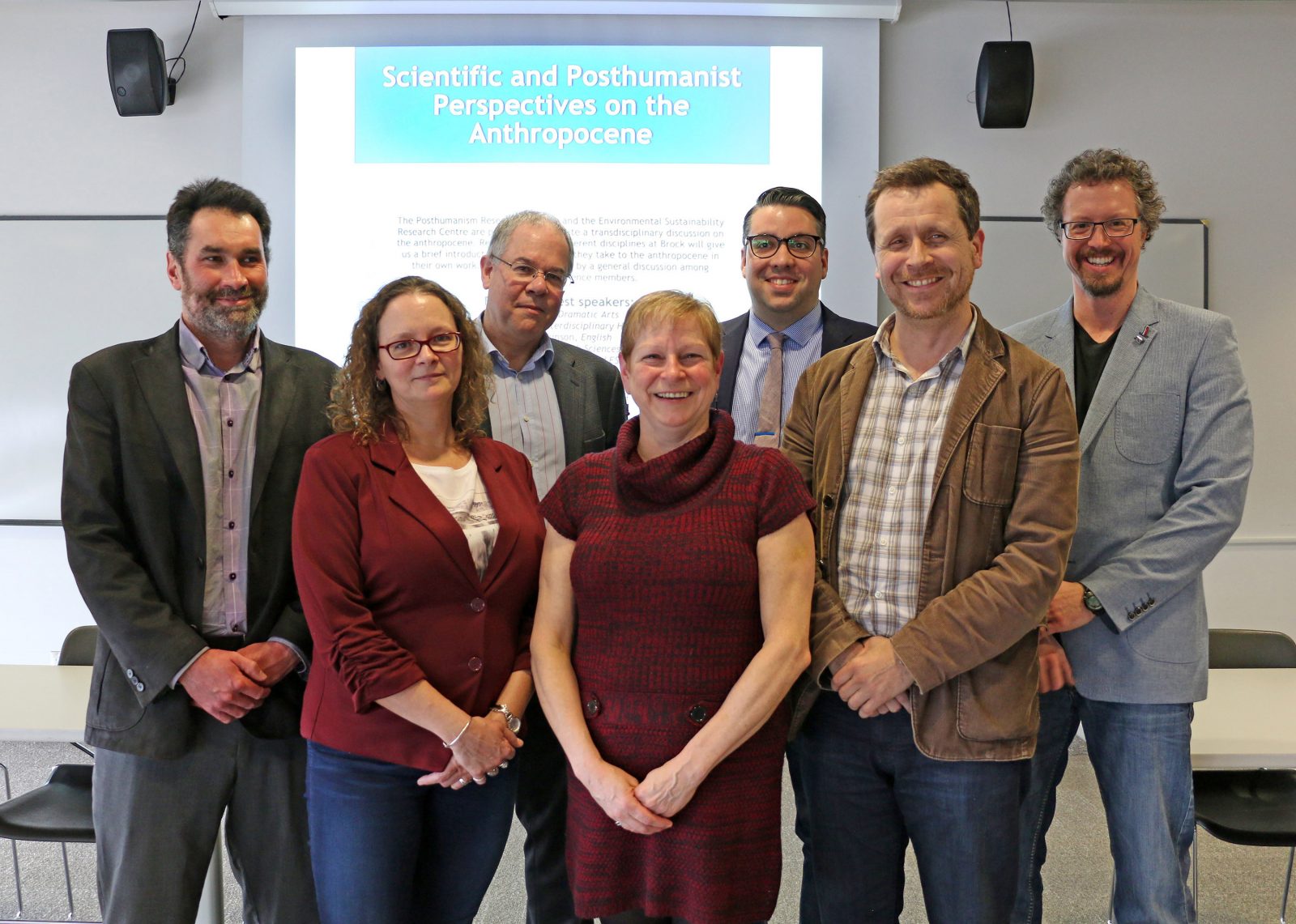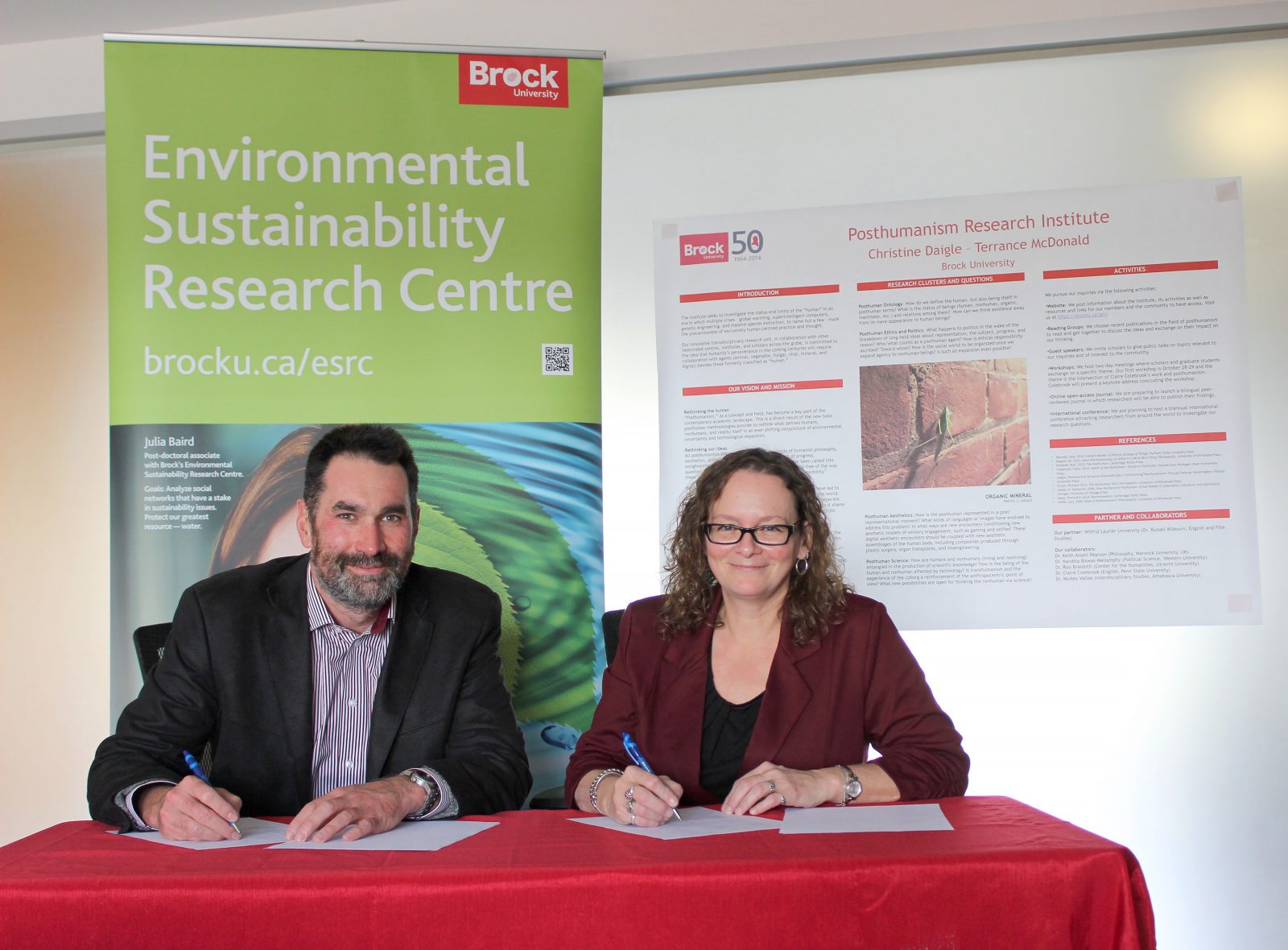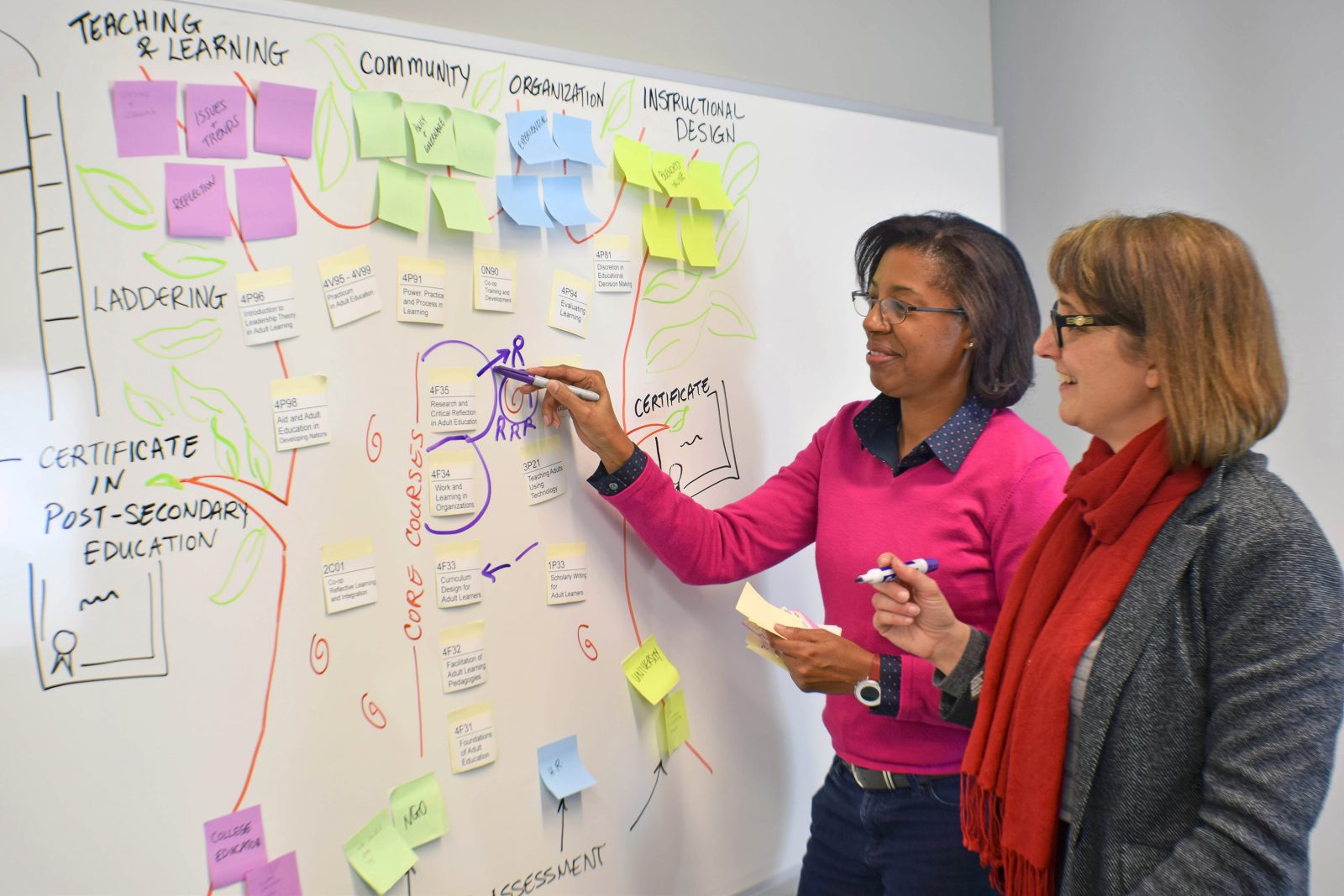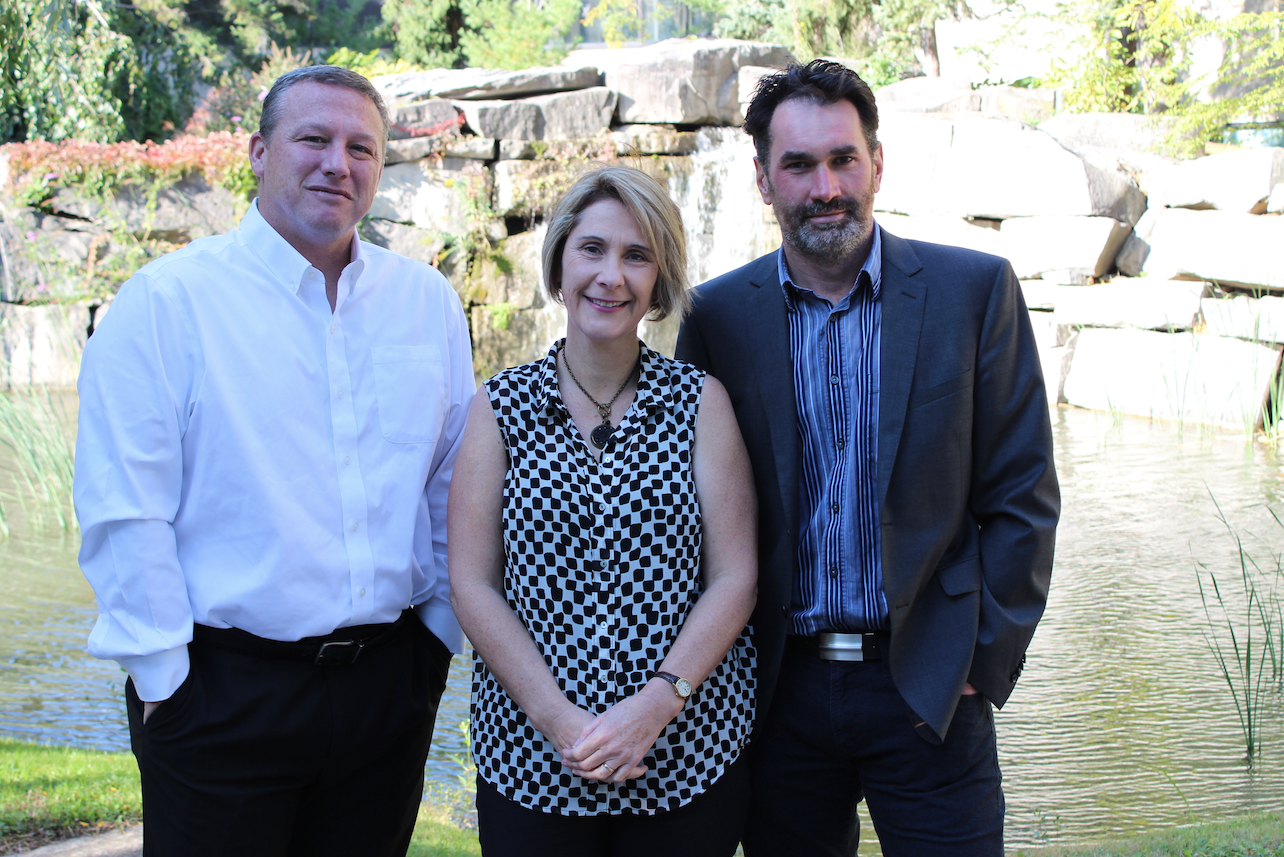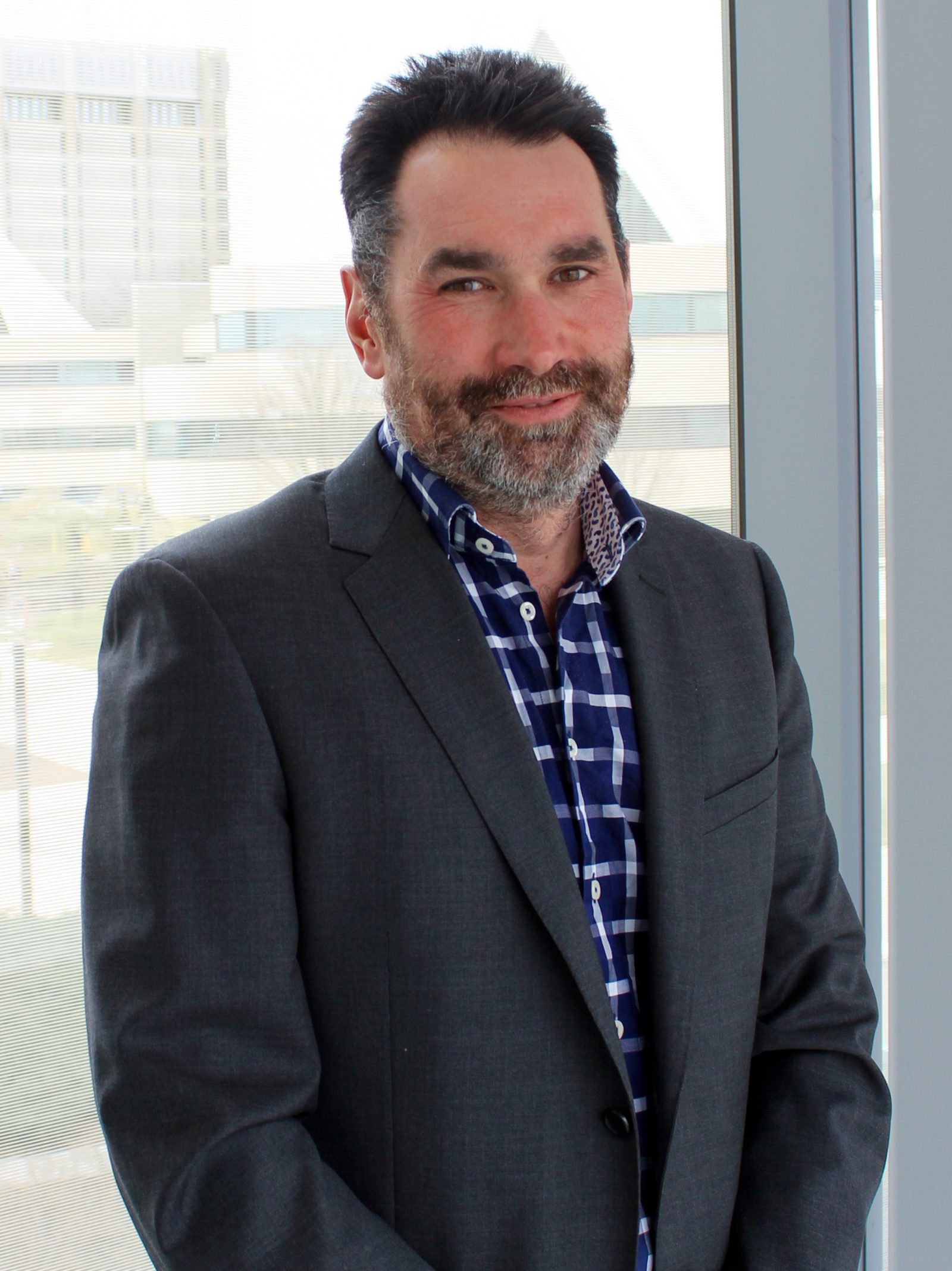 Ryan Plummer, Professor and Director of Brock’s Environmental Sustainability Research Centre, will deliver the keynote address at the 12th annual Mapping the New Knowledges Graduate Research Conference on Tuesday, April 11.
Ryan Plummer, Professor and Director of Brock’s Environmental Sustainability Research Centre, will deliver the keynote address at the 12th annual Mapping the New Knowledges Graduate Research Conference on Tuesday, April 11.As a sea of graduate students looks on, award-winning researcher Ryan Plummer will share the story of his work and details of the people and events that have helped to shape his life and career.
The professor and director of Brock’s Environmental Sustainability Research Centre will deliver the keynote address at the Mapping the New Knowledges (MNK) Graduate Research Conference on Tuesday, April 11.
Plummer, known internationally for his work in the area of governance of social – ecological systems, is a Senior Research Fellow at the Stockholm Resilience Centre in Sweden and a past Science Director at the Canadian Rivers Institute.
His address will kick off the daylong conference at 8:30 a.m. in Plaza 400 Level Mezzanine.
The 12th annual event will feature research presentations by graduate students — and, for the first time, undergraduate students — from across a wide range of fields in Brock’s six Academic Faculties.
Over the course of the day a total of 38 graduate poster presentations, 83 graduate oral presentations and 20 undergraduate presentations will take place, making the 2017 MNK conference one of the largest to date.
“As a truly transdisciplinary event, the conference shows the scope of how the doctoral and master’s students at Brock are operating at the cutting-edge of thought, progress and development across all subjects and disciplines,” says Jens Coorssen, Dean, Faculty of Graduate Studies.
“We are extremely pleased to extend to undergraduate students the experience of participating in a friendly and collegial graduate-level conference. They will find the conference a truly inspiring atmosphere and they will come away with ideas and thoughts on how to refine their research interests and build collaborations.”
The conference will celebrate the graduate studies community with the MNK Awards ceremony from 11:30 a.m. to 12:15 p.m. The ceremony will include the presentation of the 2017 Marilyn Rose Graduate Leadership Award and Graduate Mentorship Awards, and special recognition of graduate students who have been selected to receive the 2017 Jack M. Miller Excellence in Research Awards.
Visit the MNK website for a detailed conference schedule of sessions.
Follow the conference at #BrockMNK
MNK schedule at a glance:
8 to 8:30 a.m.
Registration and breakfast — Plaza 400 Level Mezzanine
8:30 to 9 a.m.
Opening remarks — Plaza 400 Level Mezzanine
Welcome — Jens Coorssen, Dean, Faculty of Graduate Studies
Keynote address — Ryan Plummer, Professor and Director, Environmental Sustainability Research Centre, Faculty of Social Sciences
9 to 10:40 a.m.
Concurrent Oral Session 1
Graduate student sessions 1A to 1F — Plaza Levels 300 and 400
Undergraduate student sessions 1G and 1H — Cairns 207, 336 (CHYS meeting room)
10:40 to 11:30 a.m.
Coffee break and poster viewing, morning session — Cairns Complex Level 300
11:30 a.m. to 12:15 p.m.
MNK Awards — Plaza 400 Level Mezzanine
Presentation of the 2017 Marilyn Rose Graduate Leadership Award and Graduate Mentorship Awards
Recognition of recipients of the 2017 Jack M. Miller Excellence in Research Awards and finalists of the 2017 3MT Challenge
12:15 to 1:20 p.m.
Lunch — Plaza 400 Level Mezzanine
1:20 to 3 p.m.
Concurrent Oral Session 2?
Graduate student sessions 2A to 2F — Plaza Levels 300 and 400?
Undergraduate student sessions 2G and 2H — Cairns 207, 336 (CHYS meeting room)
3 to 3:50 p.m.
Coffee break and poster viewing, afternoon session — Cairns Complex Level 300
3:50 to 5:10 p.m.
Concurrent Oral Session 3?
Graduate student sessions 3A to 3G — Plaza Levels 300 and 400
5:15 p.m.
Graduate Students’ Association social — Cairns Atrium
Story from The Brock News
